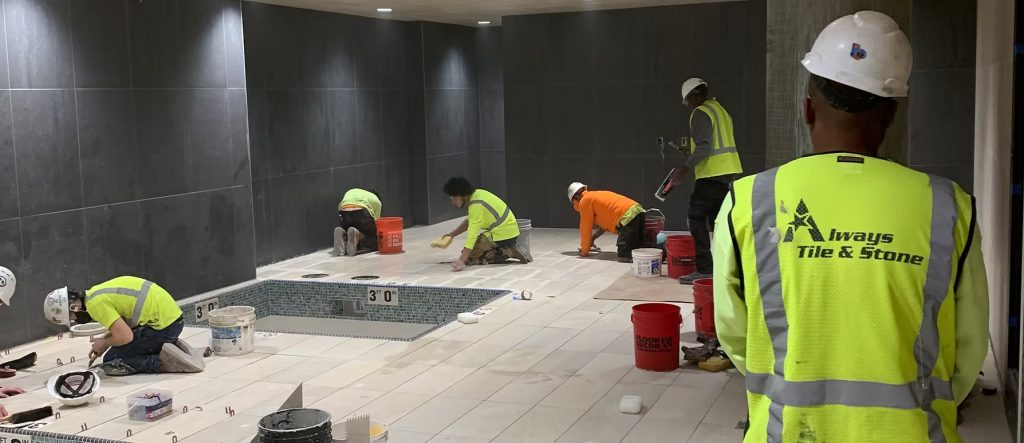How ATS LLC Modernized Its Bid Management with Automation and a Custom App

The team received hundreds of bid invitations each month from various platforms and general contractors. Handling these manually through emails and Google Sheets was time-consuming and error-prone, leading to missed opportunities and a heavy workload.
With a small estimating team, handling this growing volume of bid invitations manually became increasingly difficult. The company wanted to improve bid turnaround speed and overall project win rate without adding more manpower.
The Challenge
This process created several operational bottlenecks:
| Challenge | Description |
|---|---|
| Manual bid intake | Estimators spent several hours each day downloading attachments, entering project details, and maintaining spreadsheets and drive folders |
| High dependency on email | Information scattered across hundreds of emails made tracking and follow-up cumbersome. |
| Fragmented file management | Bid folders and documents were stored inconsistently across drives, making retrieval and review difficult. |
| Limited visibility | Leadership couldn’t easily track bid volume, estimator workload, or submission |
| Overload and missed opportunities | With growing bid volume, manual handling led to delays and missed submissions. |
In essence, manual bid handling limited growth potential. This has slowed down response time, increased the chance of oversight, and limited their ability to handle more bids.
Project Information

CLIENT:
Always Tile and Stone LLCLOCATION:
USA
PROJECT DURATION:
Within 3 Months
TECHNOLOGIES USED:
Nextjs, Nestjs
WEBSITE:
https://www.alwaystileandstonellc.com
Our Approach
The Always Tile & Stone team approached us to help streamline and automate their bid intake and management process — without disrupting their existing workflow.
We structured the modernization journey into two phases:
(1) Automation Framework on Google Workspace and
(2) Transition to a Full-Fledged Custom Application.
Phase 1: Automation Framework (Built on Google Workspace)
The first step was to optimize their existing Google Sheet-based process by embedding automation directly into their current tools — making the transition easier for a team new to digital workflows.
Key Enhancements
- Smart Email Parser
- An AI-powered parser was developed to extract key bid details (Project Name, General Contractor, Due Date, Location, and Scope) directly from incoming bid emails.
- The parser handled data from 12–15 bidding platforms, eliminating the need for estimators to manually copy information.
- Automatic Tracking in Google Sheets
- The extracted details were automatically logged into the existing Google Sheet, ensuring data accuracy and saving hours of manual entry.
- Automated File Handling
- Bid attachments (plans, specs, addenda) were automatically downloaded and stored in standardized project folders on Google Drive.
- Each folder followed a consistent naming convention, making it easier for estimators to locate files quickly.
- Rule-Based Estimator Assignment
- Automations assigned bids to estimators based on rules such as project type, GC, or region, ensuring balanced workload distribution.
- Email Notifications and Reminders
- Automatic notifications helped the team track due dates, submissions, and follow-ups — reducing dependency on manual reminders.
Impact of Phase 1
Operational Outcomes
- Reduction in manual work during bid intake.
- Increase in bid handling capacity without hiring new staff.
- Reduced missed bids, as due-date tracking and reminders were implemented.
Most importantly, automation allowed the team to focus on preparing better proposals rather than managing files and emails.
Phase 2: Building a Custom Bid Management Application
As bid volumes and data complexity grew, managing everything within Google Sheets became limiting.
To ensure long-term scalability, we began developing a custom web application tailored to Always Tile & Stone’s workflow.
What the Application Will Enable
- Centralized Bid Management: All bids, emails, and project documents in one place.
- Built-in Email Integration: Send and track bid-related emails directly from the system.
- Proposal Tracking & Reporting: Real-time insights into submission status and team performance.
- Scalable, User-Friendly Interface: Designed for non-technical users transitioning from spreadsheets.
This phase represents a shift from managing data to managing outcomes – giving leadership complete visibility and control over the bid pipeline.
The Results So Far
Always Tile & Stone has successfully transitioned from a manual, spreadsheet-heavy workflow to an intelligent, partially automated system with a clear roadmap toward a fully integrated platform.
Key achievements include:
- Reduced manual workload for estimators.
- Improved bid capacity without expanding the team.
- Enhanced visibility for leadership with real-time insights.
- Improved win rates, as estimators now spend more time on pricing and proposal quality.
What This Transformation Represents
For a construction company taking its first major step into digital operations, this initiative was about more than just automation – it was about building confidence in technology.
The Always Tile & Stone journey demonstrates that even traditional construction firms can:
- Digitally manage complex bid workflows without expensive enterprise software.
- Scale bid capacity and operational efficiency through automation.
- Empower teams to adopt technology progressively, at their own comfort level.
- Turn data chaos into structured, actionable intelligence.
Final Reflection
Always Tile & Stone’s journey shows that modernization doesn’t have to start with massive systems or complex tools.
With the right approach, even small-to-medium construction companies can automate routine work, achieve visibility, and unlock capacity – one phase at a time. The transition from manual to automated systems has not only improved efficiency but also helped the team adopt technology confidently, setting a strong foundation for future scalability.

